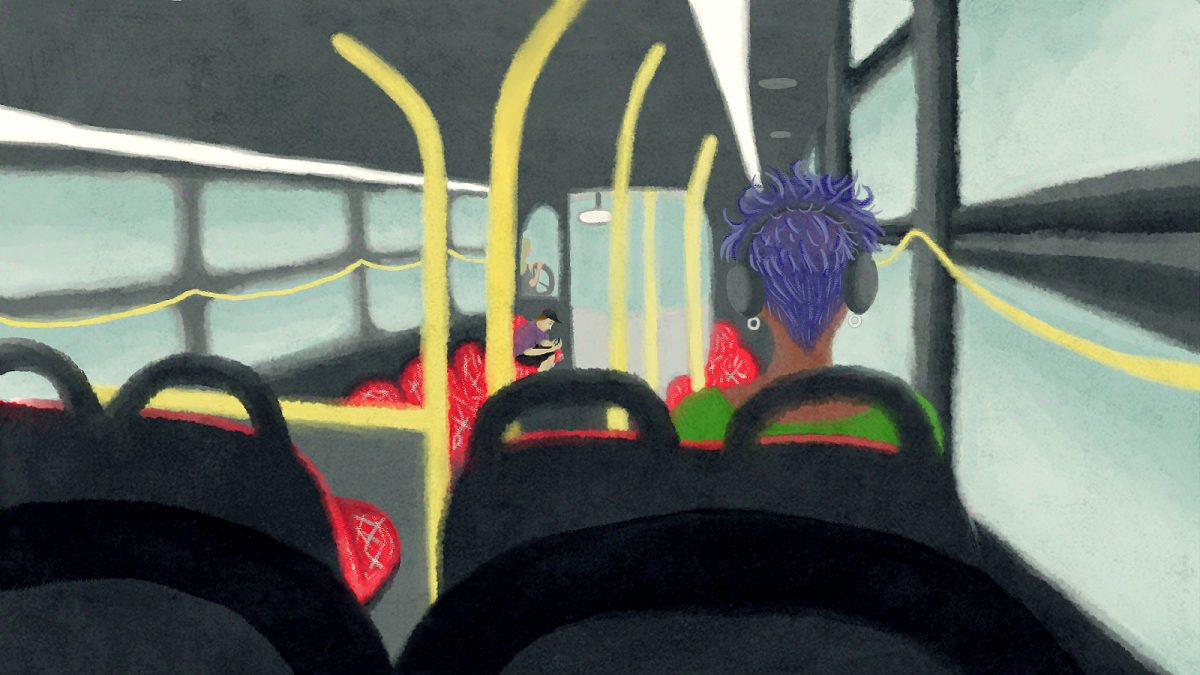
Graphic by Rory Moon
With the start of each school year, students rely on the Wolfline to navigate their way across campus, but recurring issues continue to frustrate riders. Delays, late arrivals and overcrowded buses have become all too familiar to students, leaving many standing or struggling to get to class on time.
One student, a third-year studying biology, is among many students who use the PassioGo app to plan their commute to campus. They said the arrival times can interfere with their arrival to class.
“I usually leave an hour early to try to avoid that,” they said. “But even leaving an hour early has caused me to almost be late.”
Many students often attribute these delays to a shortage of drivers, but Amanda Simmons, NC State’s transit planner, said fall staffing is contingent upon the previous summer, which operates at a lower capacity.
“When there is not as many drivers over the summer, then we don’t know who all is going to be coming back for the fall,” Simmons said. “We’re hiring more drivers to come on board, but it should be at the full level of capacity after the beginning of the school year.”
The Wolfline is operated by the third-party company Transdev, which is also responsible for hiring drivers.
As of September, the staffing seems comparable to previous years. Out of the 48 full-time positions, 40 are filled. Out of five part-time positions, four are filled, with the addition of 13 on-call drivers.
In hiring efforts, Transdev has offered incentives to new drivers such as a $1,000 Sign-On Bonus, an extra $2 an hour for shifts after 10 p.m. and opportunities for overtime.
However, even with adequate staffing, delays that lead to overcrowding can still happen because new hires are undergoing training and some drivers may not yet be trained for particular routes.
“They train on multiple routes, but they might not know every single route and be able to switch on the dime like that,” Simmons said. “So they choose their routes at the beginning to know which ones are going to be running.”
In addition, delayed bus arrivals can also be attributed to traffic on and around campus. As the PassioGo app tries to predict times of arrival, it cannot account for surrounding traffic.
As a solution, Wolfline buses have layover points where drivers can stand to get back on scheduled timing.
The PassioGo app also has push notifications that inform students about detours, delays and missed services.
Demar Bonnemere, NC State’s communications manager, suggested that students who live off-campus consider using GoRaleigh and GoTriangle routes as alternative commuting options.
“GoRaleigh, they’ve got a bus that runs up and down Avent Ferry Road, GoTriangle runs up and down Western Boulevard and Hillsborough street,” Bonnemere said. “If that’s something they are interested in, they can get a GoPass that allows them to ride those buses for free.”
Simmons suggests that students also utilize Google Maps for trip planning.
“Students, a lot of times, will find a route that works for their needs and kind of try to stick with that route,” Simmons said. “But if you use Google Maps for transit directions, that will show all of the buses, not just Wolfline.”
While students may continue to experience delays early in the semester, NC State Transportation and Transdev are working closely to monitor operations, train new drivers and adjust routes where needed.
“We are trying very hard to make sure we keep those schedules and be reliable,” Simmons said.